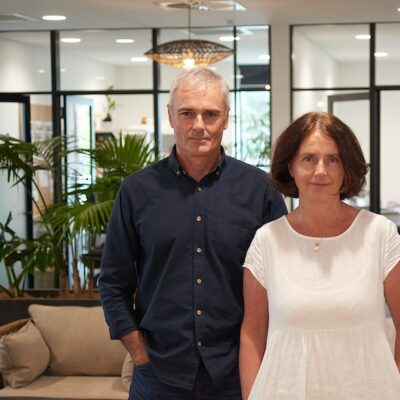Businesses showing signs of optimism
Growing signs of an economic turnaround are highlighted by the attitude of New Zealand businesses in the latest Grant Thornton International Business Report (IBR) for the second quarter of 2012.
600
Growing signs of an economic turnaround are highlighted by the attitude of New Zealand businesses in the latest Grant Thornton International Business Report (IBR) for the second quarter of 2012. The survey suggests that Kiwi businesses have growing confidence in the economy over the next 12 months, the majority are expecting an increase in turnover/revenue, and profitability is tipped to grow.
Paul Kane, a Grant Thornton New Zealand partner, said the IBR results provided a heartening indicator that better economic times are ahead and were in contrast with the global market. “The general message is that New Zealand businesses think the worst is behind them. They’ve gone through the pain of restructuring over the past two or three years and are now poised to reap the benefits of that. It’s also interesting to note that the more optimistic mood is shared across both North and South Islands.”
The IBR reveals that half the businesses surveyed are slightly optimistic about the country’s economy over the next year while the majority are confident of turnover/revenue with 64.80% of North Island businesses expecting an increase and 74.50% in the South Island. Anticipated improvement in profitability was also signalled; 72.2% of northern businesses tipping a rise and 61.70% in the south.
Kane said the higher figure in the South Island reflected the anticipated growth around the Christchurch rebuild and the spin-off for the construction sector, in particular.
Good news on the employment front is that 37% of North Island and 40.40% of South Island businesses expect jobs to increase but the availability of skilled workers is a concern, especially in the south where 34% saw it as more than a moderate issue versus 24.10% in the north.
“We sometimes hear a lot about unavailability of skilled workers in New Zealand but the reality is that the situation isn’t too bad although, again, Christchurch will buck the trend given the demands associated with the rebuild,” Kane said.
Cost of finance was of low concern by 48.10% of North Island businesses and 55.30% in the South Island while very few are picking a shortage of long term finance, at 3.70% and 2.10% respectively.
Kane said New Zealand’s more optimistic findings made interesting reading against international results.
“By comparison, on the global arena, business expectations for revenues, profits and employment remain at or below levels observed 18 months ago. Global economic uncertainty is weighing on short-term business growth prospects.”
The global economy is further highlighted by the sharp rise in the proportion of businesses in the Eurozone, China and the US, citing reduced demand as a constraint on expansion – at 44% in China, the highest level since 2009.
New Zealand businesses were asked if public private partnerships (PPPs) are the way of the future to develop New Zealand and its infrastructure. With only 16% against PPPs as a way forward, Kane said it was clear that business wanted less involvement from government to pave the way for private enterprise.
However, the attitude towards privatising assets was less clear cut with opinion more evenly divided; 34% of New Zealand businesses were against such a move, 30% said perhaps, and 36% were in favour.





